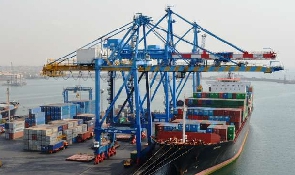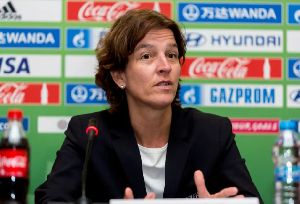An estimated US$ 8.3 million in monthly revenue is lost through corrupt practices at the country’s seaports.
This sum amounts to almost US$ 50 million every six months and US$ 100 million each year, according to Vice President Dr Mahamudu Bawumia. The losses, he said, are due in part to deception by some importers who, with the aid of some rogue officials, deliberately and wrongly declare the contents of imported containers.
“In an attempt to lessen corruption at the various ports, the country initiated a port paperless system (PPS) in 2017 that allows for a transparent clearing system,” he said.
He however said there remains a lot to be done to attain a fully corruption-free port.
“There is therefore a compelling need for maritime sector stakeholders across the continent to formalise actions to combat bribery and corruption, by collaborating and encouraging all stakeholders in the ship/shore interface to ensure compliance with national and international laws prohibiting corruption,” Dr Bawumia advised.
Dr Bawumia said this in a speech read on his behalf by the Minister of Public Enterprises, Joseph Cudjoe, at a Regional Maritime Stakeholders’ Workshop in Accra.
With Port Tema controlling 70 percent of the country’s seaborne trade and Takoradi Port handling the export of minerals mainly from mines situated in the Western part of the country, Dr Bawumia maintains that challenges such as bureaucracy and delays in clearing goods have been minimised through the PPS
Meanwhile, maritime stakeholders have expressed concern that the inability to fully tackle corruption at the various ports could have far-reaching consequences which would be detrimental to shipping operations within the African Continental Free Trade Area.
Danish Ambassador to Ghana, Tom Norring, disclosed that Denmark has been assisting countries in the sub-region to build a robust, corruption-free shipping industry.
“Denmark has always been a strong player in the maritime sector globally and in the West African region. We have always encouraged transparency in the sector, as Denmark is a country that frowns on corruption. The Danish maritime industry is known for its efficiency, and we have helped to replicate some of its technologies in the region,” he said.
Ambassador Norring said the African Continental Free Trade Area presents a historic opportunity to boost intra-African trade through the maritime industry, and thus further reap the sector’s benefits.
The Regional Maritime Stakeholder Workshop on Global Good Practice in Vessel Clearance was organised by the Maritime Anti-Corruption Network; Convention of Business Integrity-Nigeria; the Danish government and the Ghana Maritime Authority.
General News of Tuesday, 31 January 2023
Source: thebftonline.com













